Listen closely. Yep, closer still.
If you're playing
Hell Quest: Tears of God on a reasonably regular basis, then you need to pay attention to the following series of paragraphs. (I might begin to sound like one of those shady horse racing insiders, but bear with me.)
This is because I have some tip-top tips up my sleeve for you to increase your chances of success in this luck-based title.
What you'll find below are simple strategies every player should know, as well as mid- to high-level concepts that will lead to you winning matches in no time.
So, read on for a masterclass in gambling advice.
Fundamental strategies
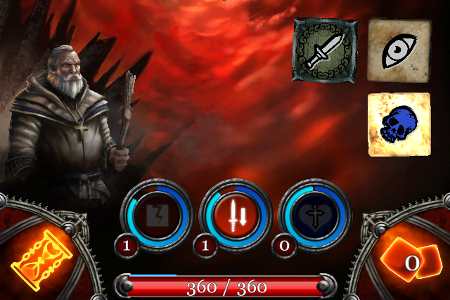
I'm going to assume you know the basics of this game by now, so I won't bother detailing them here. What I do want to tell you, though, about are the straightforward tactics that are of relevance to 99 percent of the matches you'll play in
Hell Quest.
Simple mathematics tell you that the closer you are to having only one die left to roll, the less likely it is you'll be able to successfully make a play.
When you're left with three dice, for example, you either have to match the upside face of every single one of them, or ensure that at least one of the three faces is a blue symbol. With two standard dice, you have a 50 percent chance of losing at this stage.
However, this shouldn't discourage you from trying to match as many dice faces as possible in the first roll of each turn.
Unless they've taken a hammering from your opponent's Skills (more on these later), you'll have a number of dice in reserve that will be brought into play after the first roll. Unless you're incredibly unlucky, you should always be able to remove at least two groups of dice before ending the turn.
Full sets at full speed
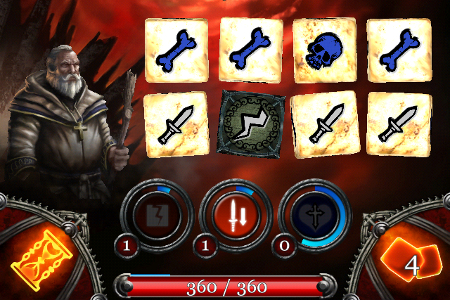
If you can remove all dice in a turn, then you absolutely, positively, undoubtedly should. By doing so, you are given another set of eight dice to play with that turn, which can dramatically increase your score. There were a couple of occasions where I managed to do this twice in one round, and it drastically reduced my opponent's life points.
Though it's difficult to increase your chances of this happening, sometimes you'll want to take the risk.
The situations you'll want to gamble on are the following:
- If you know your opponent has a much higher score than you and you can't absorb the damage he will inflict should your luck falter;
- Or when getting another set of dice to roll (and the points associated) will result in a swift end to the game.
Speed is another thing you should be aware of while playing. The earlier you finish your turn, the faster your Mana bar will fill, thus allowing you to play Skills quicker. Therefore, you shouldn't slouch in the first few rolls - instead, get to the harder decisions you'll need to make as soon as possible.
If you end the turn and are soaking up the Mana, you can execute Skills while waiting for your opponent. This will make your foe's life trickier. The downside is that you also can't take a chance on increasing your own score with dice rolls, so you should try to find a good balance.
A last word or two on speed: make sure you keep an eye on your opponent. If your rival has ended his turn early and either failed to achieve or achieved a low score, decide whether you want to mitigate any risks by playing cautiously, or take a gamble and punish him for his mistakes.
Super Skills
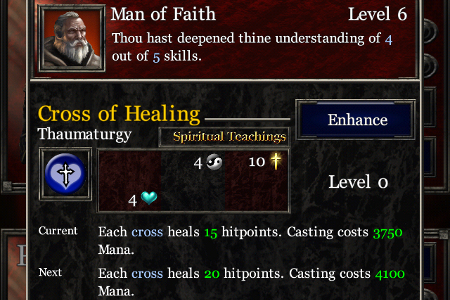
If you want to really excel at
Hell Quest: Tears of God, you'll need the skills above... and also "Skills". I'll explain in detail the best use of the latter below.
Skills require Mana to use, and your stock of them builds up slowly during matches. Skills are extremely effective, for they're
guaranteed to affect your opponent's game; they're not just calculated risks. However, you shouldn't make the mistake of using Skills whenever they become available. Nope, you should think intelligently about how and when they're most useful.
Enfeeblement is at its most effective when your opponent has a lot of points. This Skill deducts a percentage of the points total for that turn from the opposing player, so you'll want to wait until your opponent has a high score to use it, rather than bust it out during the opening moments of the round.
The opposite is true of Elicitation, which reduces the number of reserve dice your opponent has. You should play this at the start of a turn, since you don't want to waste it when your enemy has no dice left.
Likewise, there are skills that you should call upon only when they're absolutely needed. The Saint has one called Profound Reflection, for example. This starts the turn anew, resetting your points and dice. It should only be used when you've rolled yourself into a corner and there's very little chance you'll win the round.
Play sensibly and thoughtfully using the tips above, and your chances of success are guaranteed to improve. Odds of 1/3, I reckon.
Got any tips to share? Let us and the rest of the PG community know them by leaving them in the comments box below.









 Pictoo Game Answers level 76-100
Pictoo Game Answers level 76-100 Swipe Me Out Cheats & Hack for All Characters & No Ads 2016
Swipe Me Out Cheats & Hack for All Characters & No Ads 2016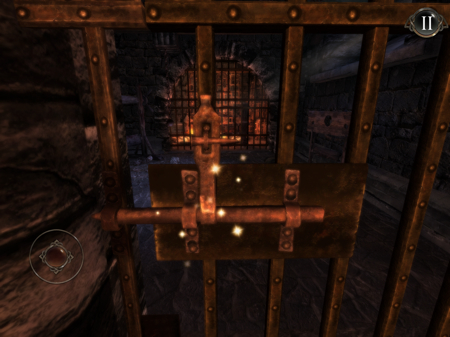 How to break out - Hellraid: The Escape complete walkthrough
How to break out - Hellraid: The Escape complete walkthrough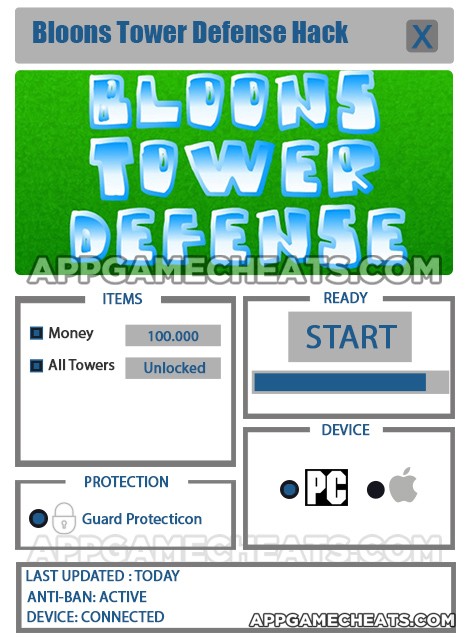 Bloons Tower Defense Hack & Cheats for Money & All Towers
Bloons Tower Defense Hack & Cheats for Money & All Towers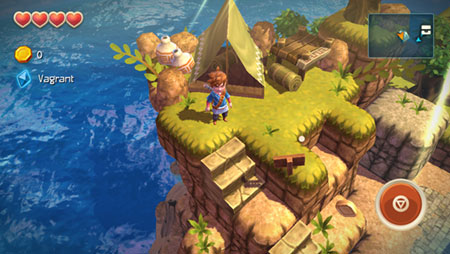 Oceanhorn walkthrough - Chapter 1: Finding the Great Forest
Oceanhorn walkthrough - Chapter 1: Finding the Great Forest